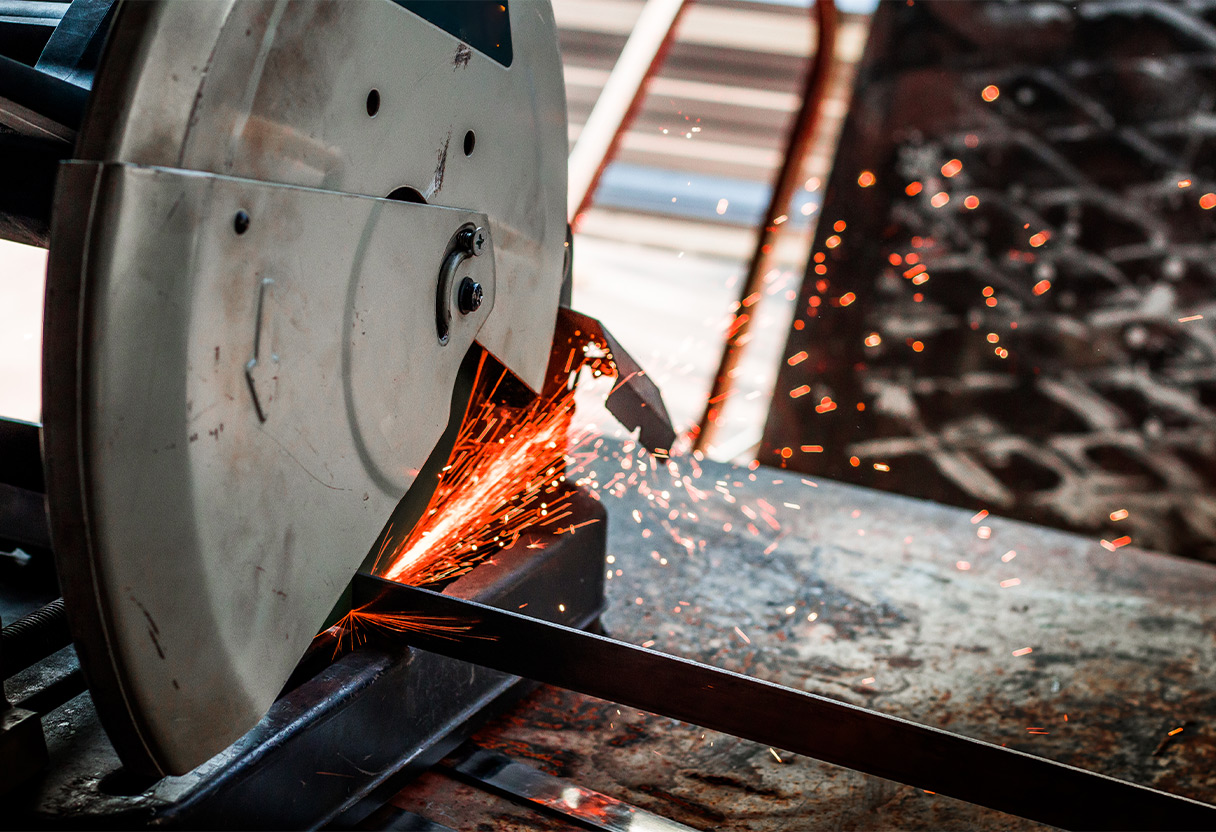
Nisha Singh / Date: 19 May, 2025
What is Grinding Machine?
In the manufacturing and metalworking industries, grinding machines are vital to the processes of shaping, finishing, and smoothing materials to exact tolerances. But what is a grinding machine, exactly, and why do they matter so much in so many industries?
Getting to Know the Fundamentals of a Grinding Machine
Grinding machine, or grinder, is a highly versatile tool that is applied to cut off material from a work piece by abrasion. It employs an abrasive wheel as the cutting tool to polish or hone metal or non-metal surfaces. The primary objective of grinding is to enhance the surface finish and attain a high degree of accuracy in terms of dimensions.
Types of Grinding Machines
There are various types of grinding machines, which are each suited to particular uses:
- Surface Grinders: Suitable for producing flat surfaces.
- Cylindrical Grinders: Employed for grinding cylindrical surfaces.
- Centerless Grinders: Suitable for high-volume production without the necessity for centering.
- Tool & Cutter Grinders: Employed for cutting tool sharpening.
- Bench Grinders: Smaller machines frequently utilized in workshops for hand-held work.
Applications of Grinding Machines
Grinding machines are integral in industries including:
- Automotive – For engine component production and precision shaping of components.
- Aerospace – For Fulfillment of very stringent surface finish and dimensional requirements.
- Metal Fabrication – For polishing and finishing a variety of metals.
- Construction – In surface preparation and tool sharpening.
- Manufacturing – Across any process demanding high precision and surface finish.
Why Select Quality Grinding Equipment?
At Nice Dust Control Industries, we know that grinding operations not only require high accuracy but also clean and safe working conditions. Our state-of-the-art dust control systems are specifically engineered to complement grinding machines to minimize airborne particles and enhance workplace safety and air quality.
Through proper grinding machines and effective dust control systems, companies can attain:
- Improved product quality
- Increased tool life
- Improved working conditions
- Increased production efficiency
How Grinding Machines Improve Manufacturing Processes?
Precision and Accuracy
Grinding machines are indispensable in today's manufacturing process because they can provide extremely accurate and precise finishes. Grinding machines have the capability to remove even the tiniest amount of material to make sure that the parts have precise design specifications. Such high precision is important in industries such as the aerospace, automotive, and medical equipment industries, where any slight deviation will cause product failure.
Improved Surface Finish
One of the greatest advantages of grinding machines is that they can produce smooth and uniform surface finishes. The better-finished surface not only appears more aesthetically pleasing, but also makes a part function better by minimizing wear and tear when in use. This makes grinding particularly suited for parts that need to fit together closely or be more durable.
Versatility in Applications
Grinding machines are highly versatile and can handle a wide range of materials such as metals, ceramics, plastics, and composites. They are applied in numerous applications such as tool shaping, blade sharpening, and finishing precision parts. The versatility enables manufacturers to achieve a broad scope of production demands with one machine type.
Higher Productivity and Efficiency
Today's grinding machines have the latest automation and CNC controls, making it possible for them to carry out intricate tasks with minimal human involvement. Automation enhances production speed and accuracy as well as diminishes manual labor and the possibility of errors. It ultimately produces increased productivity and cost savings during manufacturing.
Typical Applications of Grinding Machines in Day-to-Day Operations
Grinding machines are an essential part of the day-to-day operations of numerous industries, providing precision, consistency, and smooth surfaces for all kinds of materials. In manufacturing facilities and metalworking plants, they are often utilized to sharpen tools, form machine parts, and attain tight tolerances needed in engineering applications. Grinding machines are depended upon by automobile workshops to rejuvenate engine parts, brake rotors, and transmission components. During construction, they smooth the surface of concrete and polish metal frameworks. Grinding is also critical in the manufacturing of domestic items, appliances, and hardware components, making every part fit and work correctly. Woodworking workshops employ grinders to sharpen blades and mold wooden elements into precise shapes. Grinding machines are also commonly utilized in maintenance shops for rebuilding damaged parts and restoring them to like-new condition. With increasing emphasis on product durability and quality control, surface finish and dimensions are precisely maintained by grinding machines. At Nice Dust Control Industries, we do not only understand the utility of grinding in day-to-day production but also promote the cleanliness and hygiene of surroundings through our state-of-the-art dust control systems, maintaining operations cost-effective and health-conscious in all industrial environments.












